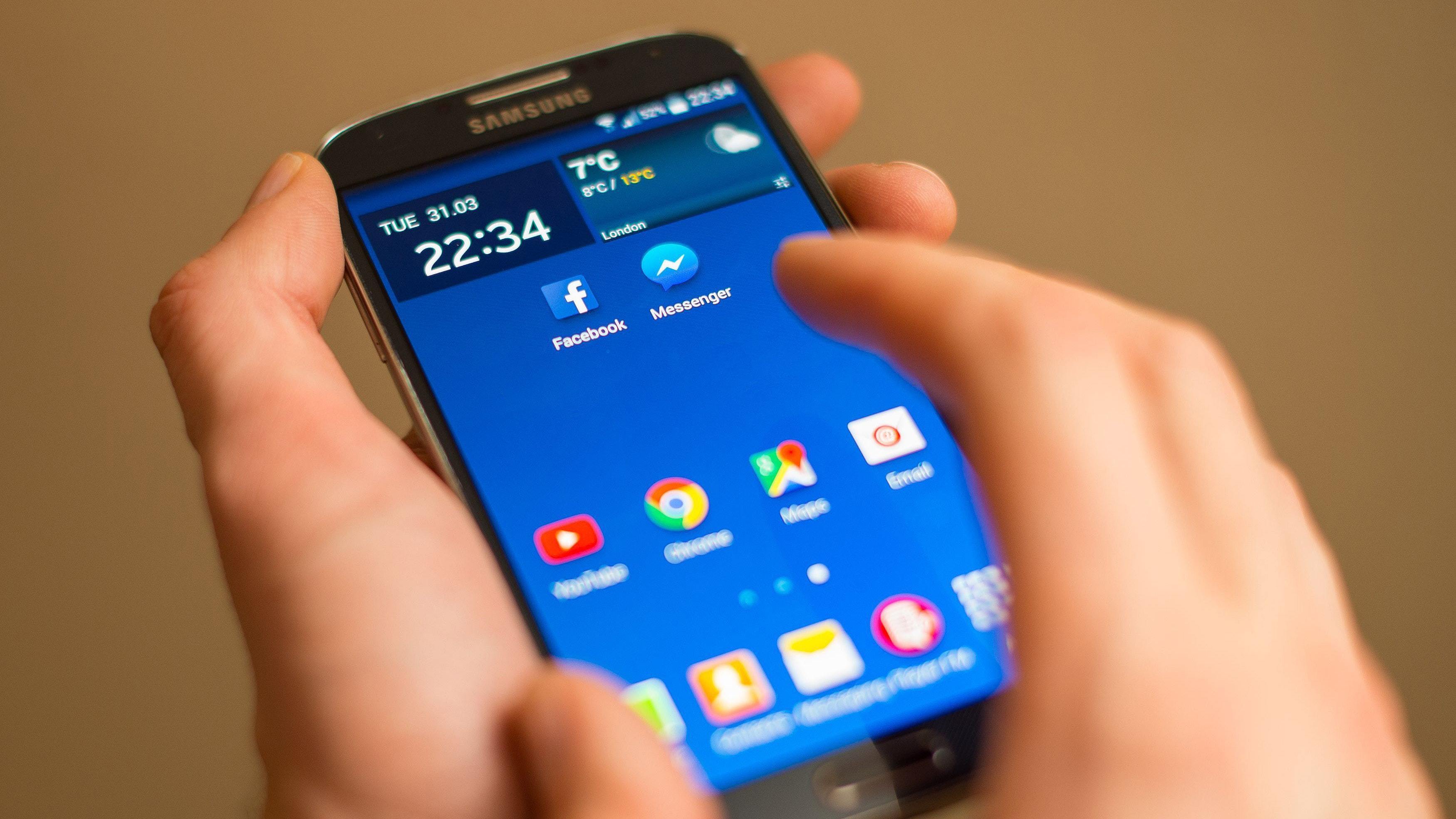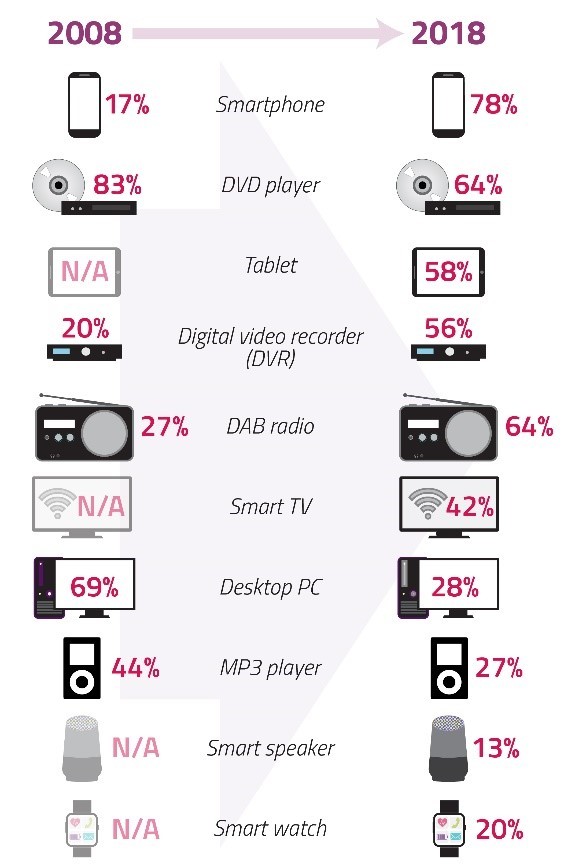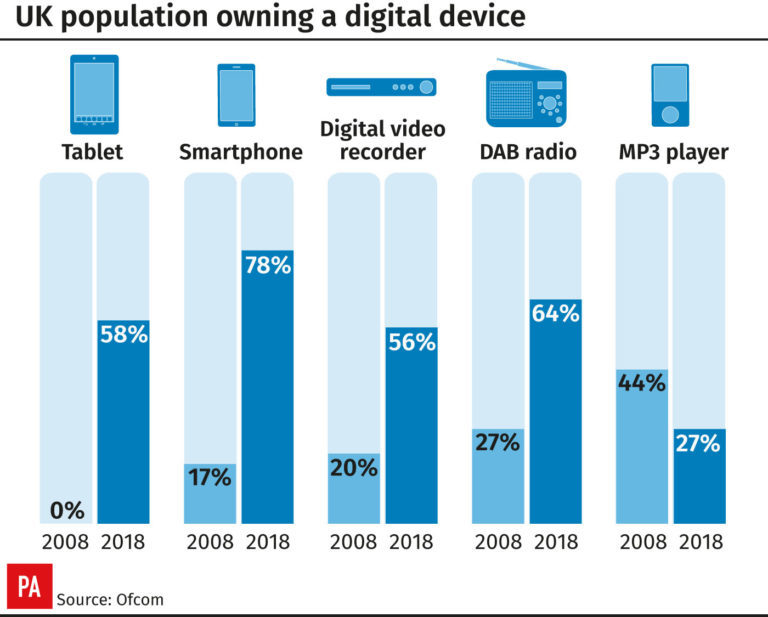
A FIFTH of British adults now spend more than 40 hours a week online and most say they are dependent on their digital devices, according to Ofcom findings.
A decade of technological revolution has transformed the behaviour of Britons, who now need constant connection to the internet and check their smartphones on average every 12 minutes of the waking day, the regulator’s annual Communications Market Report said.
In contrast to just 10 years ago, most people now say they need and expect a constant internet connection wherever they go, with 64% of adults describing it as an essential part of their life.
For the first time, the amount of time spent making phone calls from mobiles has fallen as users increasingly turn to internet-based services such as WhatsApp and Facebook Messenger.
Only 75% of smartphone owners consider using a mobile for phone calls to be important, compared with 92% who think using the device for internet browsing is important.
Half of all UK adults (50%) say their life would be “boring” without the internet, around a third say they feel cut off or lost without it and 17% find it stressful without a connection.
Some 19% of adults say they spend more than 40 hours a week online, up from 5% just over 10 years ago, and for the first time this year women spend more time online than men.

Change in device take-up (Ofcom)
Overall, people claim to spend an average of 24 hours each week online – double the amount of time spent in 2007.
Two in five adults (40%) first look at their phone within five minutes of waking up, rising to 65% of those aged under 35, while 37% of adults check their phones five minutes before lights out, again rising to 60% of under-35s.
However, Ofcom found significant numbers of people think being online has negative effects on their lives, with 15% saying it makes them feel they are always at work and 54% admitting that connected devices interrupt face-to-face conversations with friends and family.
Ian Macrae, Ofcom’s director of market intelligence, said: “Over the last decade, people’s lives have been transformed by the rise of the smartphone, together with better access to the internet and new services.
“Whether it’s working flexibly, keeping up with current affairs or shopping online, we can do more on the move than ever before.
“But while people appreciate their smartphone as their constant companion, some are finding themselves feeling overloaded when online, or frustrated when they’re not.”
The study revealed disagreement between older and younger generations about acceptable smartphone use around others, and many admitted that the way they behave in public on their smartphones is unacceptable “in principle”.
Three quarters (76%) find it annoying when someone is listening to music, watching videos or playing games loudly on public transport and 81% object to people using their phone during meal times.
Just over half of adults (53%) say they are usually on their phone while watching television with others but 62% of over-55s think this is unacceptable, dropping to just 21% of 18 to 34-year-olds

Enjoy the convenience of having The Sunday Post delivered as a digital ePaper straight to your smartphone, tablet or computer.
Subscribe for only £5.49 a month and enjoy all the benefits of the printed paper as a digital replica.
Subscribe